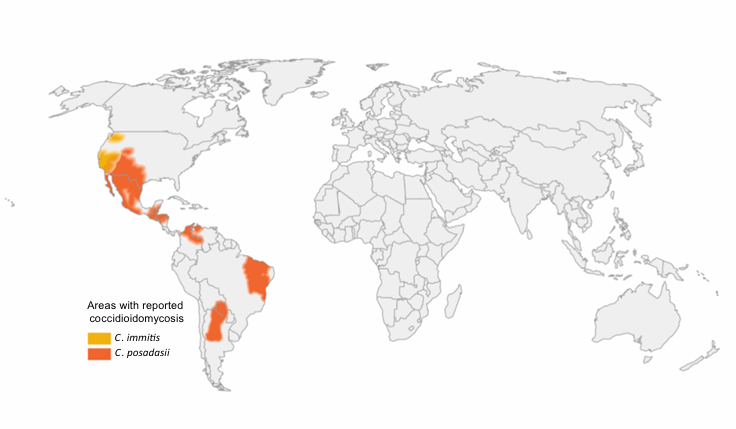A retrospective study conducted by Ravi et al in Arizona evidently showed that a combination of diagnostic tests provides the best diagnostic yield for coccidioidal meningitis. Fungal culture was positive in only 4.4% of cases. In this study, which recruited 110 participants, most cases were diagnosed via CSF antibody tests (93.7%).
The positivity rate of the first CSF test was 89.1% for IgG by enzyme immunoassay, 62.2% for IgG by immunodiffusion and 70.2% for IgG by complement fixation. PCR was only positive in 18.8% and Coccidioides antigen in 33% although a diagnosis of coccidioidal meningitis was exclusively reached in two cases using antigen testing alone or PCR. Serum coccidioidal IgG antibody was positive in about 85% of cases.
In addition, while some studies have shown PCR and culture to have similar performance in pulmonary samples, authors contrastingly demonstrated that PCR identified many patients with coccidioidal meningitis who were missed by culture.
Ravi et al also emphasized the need to encourage repeat CSF evaluations for cases of suspected coccidioidal meningitis. Six of the 110 (5.5%) who were initially seronegative from first CSF sample evaluation were diagnosed with proven or probable coccidioidal meningitis on CSF analysis from a subsequent lumbar puncture.
Conclusively, while serologic assays for Coccidioides provided the highest single-test yield from CSF obtained from the first lumbar puncture, a combination of tests, including serology, antigen assay, PCR, and culture, ultimately provided the highest diagnostic yield.

